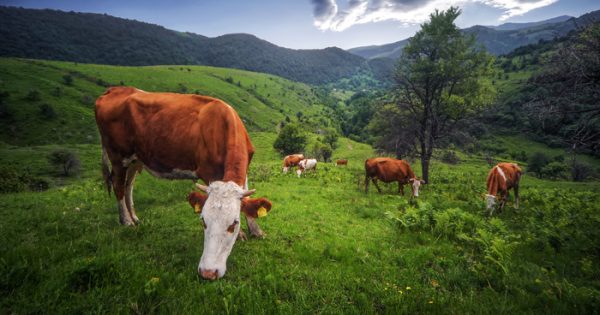One online newsletter changed my food supply …
Most days, I’m on the Internet for work. I’m usually searching for information. There are a few online newsletters to which I subscribe in order to keep up with the issues of the day and general reports. I never thought my Internet searches would lead to my making a difference in my food supply.
It was through one of these online newsletters that I found a company who was canning high-quality beef and pork from a family farm. I checked out their website and looked for nutritional information.
It is always valuable, especially for someone like me who is sensitive to heavily salted foods. The nutrition information wasn’t available on their website, so I called.
The number seemed to be local to me, so I was intrigued. I like buying local.
However, the farm was located in Ohio. It turned out that one member of the family lived relatively close to me. I mentioned to him the missing nutrition information, and he promised to email it to me immediately.
Is it really pasture-raised beef and pork?
I’ve purchased pastured beef through my local grocery stores for years. My next question to the son was about that. He confirmed that the beef and pork was raised on grass, but was finished on corn.
While I had him on the phone, I learned that it was a family farm. I inquired if the corn was organic. Most commercially grown corn is genetically modified (GMO).
The person I spoke with wasn’t certain, but promised to speak with his father to find out for sure.
Family farm becomes aware
Not too long after that phone call, I got a call from his father, the actual farmer!
We had a long conversation about his farm, the cows and pigs, and the corn that was used to finish the animals before slaughter. I was disappointed to discover that he didn’t know whether the corn was organic or GMO. He told me that it came from a silo that was filled by several of his neighbors, as well as his farm.
Alarm bells are ringing
I was especially concerned because it was very likely that the corn was GMO. I spoke with him about my concerns about food that is genetically modified. He was assured by the experts that GMOs were safe.
Rather than argue about it, I decided to praise all the things he told me that were sustainable: using cover crops, rotating pastures, and using manure for fertilizer. I could see that he was really trying to produce the best meat possible for his customers, and I told him as much.
We ended the call on a positive note, and I thought that was the end of it.
Have you read this article on Food Safety and Nutrition by Tasha Greer? Click here to read it.
The food supply changes
About a week later, I got an email from the farmer’s son.
Imagine my surprise and joy to read:
“I’d like to let you know that we have researched the GMO issue, and we have decided to switch our operation in Ohio to completely GMO-free grains and hay. We are starting the process next week and will keep our customers and potential customers in the loop as to when we are completely GMO-free!”
I really didn’t expect one phone call to make that big of a change!
The moral to the story is to communicate and ask questions!
Whether you get the same result that I did or not, every person who takes the time to look into a product and ask questions will cause the market to change … and hopefully improve it for others.
It is true that the food sold in the U.S. is changing. For those of us still dependent on grocery stores, more and more of them are selling organic produce, pasture-raised meats, dairy, and eggs.
If the largest distributors, like Wal-Mart are providing organic foods for their customers, organic and pasture-raised is a big deal.
According to the OTA (Organic Trade Association), Americans spend almost $50 billion on organic foods annually. (1)
Check out this chart by the Organic Trade Association: Organic: Big Results from Small Seeds
If there is a product you like, but it’s not organic—talk to the producer, especially a small farmer. Anyone who takes the time to do that is important to them. What these farmers realize is that one person represents potentially hundreds or thousands of their customers.
You can make a difference! Sometimes, it’s just a phone call away.
Have you made a difference in your food supply? Tell us your story in the comments below.
Resources:
- Organic Trade Association. [https://www.ota.com/resources/market-analysis]
Karen the Newbie Homesteader is a novice gardener, homesteader, and permaculturist. She and her husband recently purchased four acres in central Florida to create their homestead and grow their own food. She will be sharing their adventures: successes, failures, and everything in between – here at The Grow Network.










COMMENTS(4)
It was this kind of thing that also got me started growing my own food. I was getting food from a CSA, and sweet corn and peaches tasted pretty amazing – not like anything I’ve gotten from the grocery store. The farmer growing those two items in the box was actually the farmer organizing/running the CSA as well. And he was trying to get that communication going better between us and the farmers.
So I emailed him about how good tasting the peaches and corn was – I figured it was mostly because it was local, picked at a good time, and delivered quickly after being picked.
He responded ‘yeah, and it also isn’t GMO, doesn’t have all that *icide crap in it, and we add good nutrients to the soil for it.’
So while I still buy the organic when I buy from the store or wherever, it was my motivation to start growing my own food so that I know what’s going into it. I can’t grow all my food, but it definitely got me thinking differently about the various options for food – grow my own, organic, regular non-organic in big-box grocery store, farmer’s markets, CSA, etc…
I never did hear back from the other farmers in that CSA for those that I emailed, also.
I’ve also been trying to get more restaurants, etc… offering better plant-based options. I wouldn’t mind going plant-based, but eating out is terrible when trying to do that.
So I email them after visiting to suggest some additional plant-based options.
Found this new jackfruit-based meat alternative in BBQ, curry, terriyaki, and one other – was surprised at just how good it was. So I’ve started asking places I eat out to offer that as a substitute for some of their items.
No responses back… but then I just started doing it recently.
Love this story, GThomson! Thank you for all you’re doing! It’s going to take all of us, right?
“If it’s certified ORGANIC …..doesnt mean it’s not GMO”.
I thought I had sensitivity to gluten… turns out I’m sensitive to wheat sprayed with ROUNDUP at harvest time to make harvesting easier for combines.
Do you know if USDA Organic certification is trustworthy? Can they spray “organic wheat” with RoundUp?
Me too, Jenna! From what I’ve found in my research, if it says “Organic,” yes, it is trustworthy. They have to go through rigorous tests and jump through hoops in order to be called “organic.” Now, if they are spraying a field or two away on a windy day, there are no guarantees. It sounds like another article is in order…maybe terms used to fool you into thinking it’s good for you. What do you think?